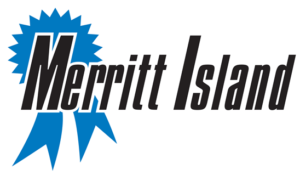Stop Believing These 5 HVAC Myths in Rockledge, FL, Today
HVAC systems in Rockledge, FL, can easily perplex anyone who isn’t already intimately familiar with them. The conflicting information found online doesn’t help either, easily causing confusion over what you should do. Here are the top five HVAC myths you need to stop believing and the truth behind how to care for your system:
Your System Doesn’t Need Professional HVAC Maintenance
One of the biggest myths is that your system doesn’t really need routine maintenance beyond what you can do yourself. However, manufacturers disagree with this so strongly that professional maintenance is often a term of their warranty.
While your system runs, tiny airborne particles collect on various components, especially on the heat exchanger and evaporator coil. This restricts the airflow in your system, reducing its efficiency and increasing operational strain. Service technicians will clean these areas during routine maintenance to reduce the occurrence of these restrictions.
They’ll also tighten the mounting bolts and fan blades to reduce vibration. Finally, your service technicians will test each component to ensure they operate within their optimal range. Finding problems early allows you to solve them before they create bigger, more expensive repairs.
Filters Don’t Really Need Much Attention
Some people say you really don’t need to pay attention to your air filters and only need to replace them occasionally. However, nothing could be further from the truth. Your filters are the first place to form an airflow restriction.
Most filters need frequent changing — about every 90 days for the typical one-inch filter. However, if you have poor air quality, you may need to replace it more often. Plan to check it at least monthly, and vacuum off the intake side to extend its service life.
A Larger Air Conditioner is Better
Air conditioner size refers to the cooling capacity of the unit. A larger unit will offer more cooling capacity. However, that doesn’t mean a bigger unit will more effectively cool your home.
Conversely, a larger unit will use more electricity to run and will cause the system to run shorter cycles. This results in more frequent cycles, which drives up both operating costs and leads to additional AC repairs. The start is the most strenuous part of the cycle, using twice as much energy than while the unit runs.
Closing Vents Will Help Reduce Cooling Costs
The common thought is that you can save money by closing vents in unused parts of your house. Unfortunately, this is nowhere close to being accurate.
Your system uses the same amount of energy to run for every minute the cycle runs. Closing a vent prevents air from flowing in those areas, but that doesn’t prevent that air from circulating. That means unconditioned air is moving into the rest of the house, leading to longer run cycles.
It also creates unusual pressure in your ducts, which can contribute to leaks in your ductwork. This leakage further reduces your efficiency because the conditioned air isn’t making it to the desired destination.
You Can Estimate Your HVAC Size If You Know Your Square Footage
You may have seen some content suggesting you can estimate your HVAC size solely based on your home’s square footage. This is only partially true, in that this is the starting point, estimating 20 BTUs per square foot.
However, there are a variety of other variables you must consider to get the right size system for your house. These variables throw a considerable amount of fluctuation in the size system that will service your home properly. Some of these variables include:
- The amount of shade your home receives.
- Number of household occupants.
- Ceiling height.
- Type of windows.
Don’t get caught buying into one of these costly HVAC myths. Call our experts at Merritt Island Air & Heat to schedule your repair service or HVAC maintenance today.
Image provided by iStock
